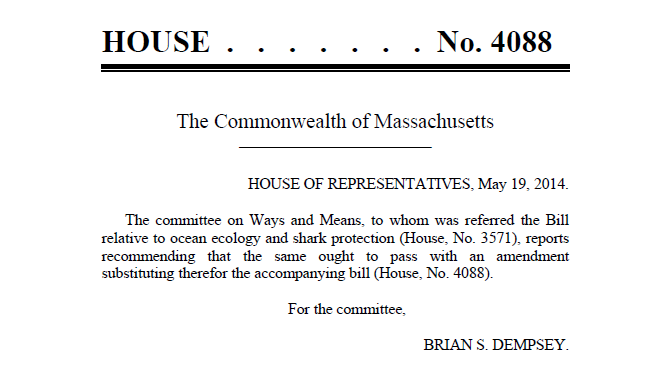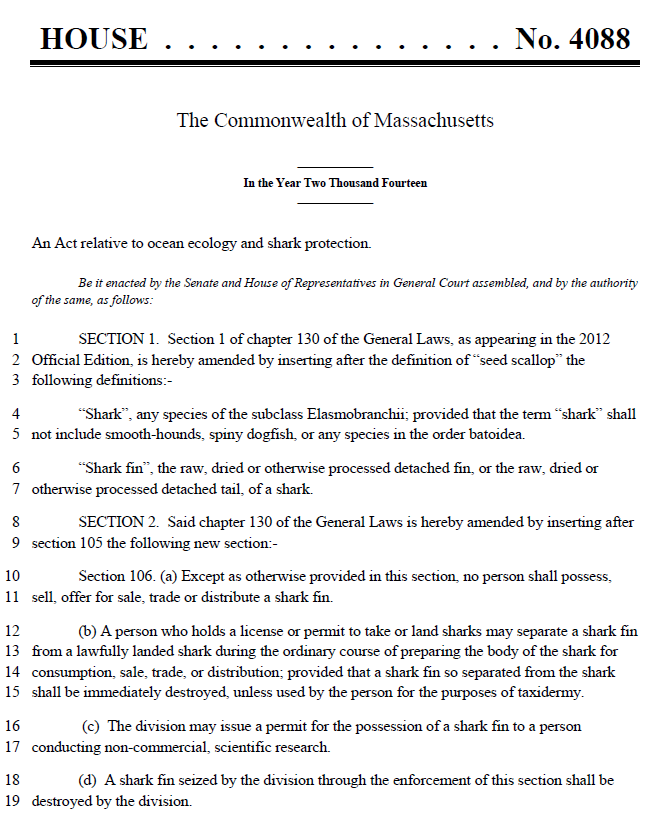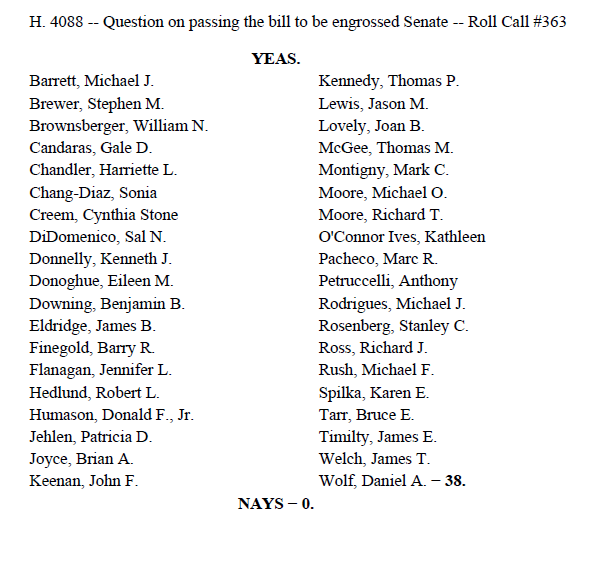Bill to ban shark fins passes Massachusetts Senate
Helmut Nickel (mail), Shark Year Magazine,20. June 2014
On 19. June 2014, the legislation banning the possession or sale of shark fins cleared the Massachusetts state Senate unanimously (YEAS 38, NAYS 0, see votes below).
The bill only exempts smooth-hound sharks, spiny dogfish and any species in the order batoidea (Rays and Skates) from the legislation. It would be still allowed to remove/use fins from other shark species for scientific purposes or taxidermy.
The complete text of the related Bill H.4088 ( title: An Act prohibiting the possession, sale, trade and distribution of shark fins ) is posted below.
Now this bill is only two votes away from the governor’s desk. It would go into effect on September 1, 2014, and would create a punishment of not less than $500 nor more than $1,000 dollars for every shark fin or up to 60 days imprisonment.



ADOPTED AMENDMENTS
An Act prohibiting the possession, sale, trade and distribution of shark fins
An Act relative to ocean ecology and shark protection
The committee on Ways and Means recommended that the bill be amended by striking out subsection (e) of section 2 and inserting in place thereof the following section:-
“(e) Whoever violates this section shall be punished by a fine of not less than $500 nor more than $1,000 or by imprisonment for not more than 60 days or by both such fine and imprisonment; provided, however, that each shark fin possessed, sold, offered for sale, traded or distributed in violation of this section shall constitute a separate offense. A violation of this section by a person holding a commercial or recreational license or permit pursuant to this chapter may result in the suspension or revocation of such license or permit.”; and
by inserting before the enacting clause the following emergency preamble:-
“Whereas, The deferred operation of this act would tend to defeat its purpose, which is to prohibit forthwith the possession, sale, trade and distribution of shark fins, therefore it is hereby declared to be an emergency law, necessary for the immediate preservation of the public convenience.”

